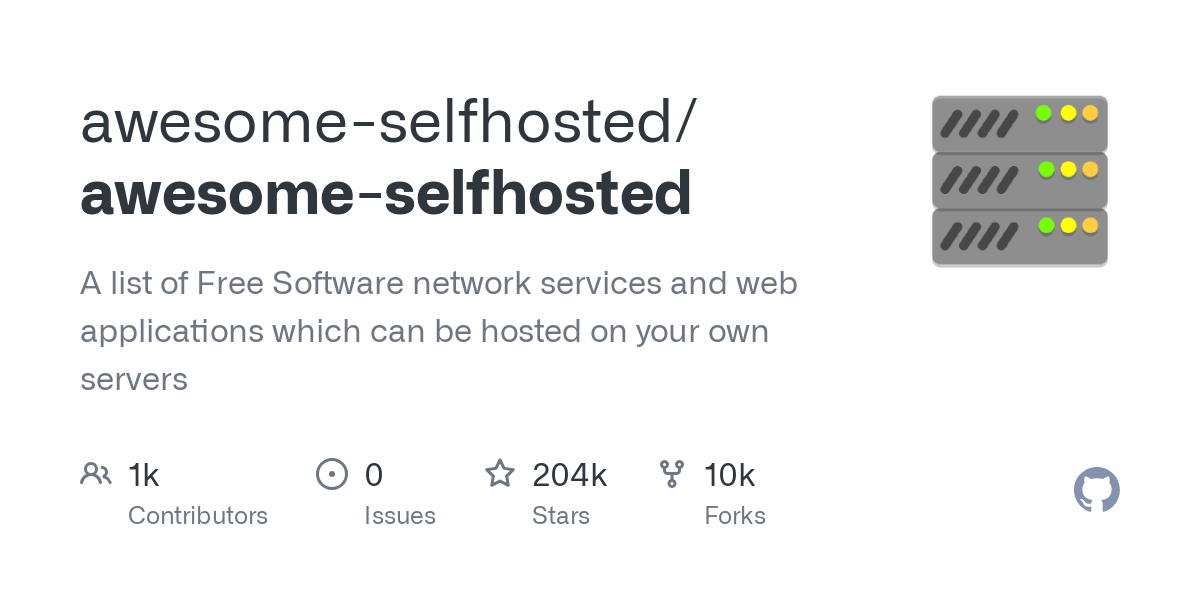What do I host on my Raspberry Pi?

I was recently faced with an issue and thought, why don't I write about it! I was working on setting up my Raspberry Pi Zero 2 W and I was struggling to think what I wanted to host on it. So I decided to write a bit about it!
I'll also be posting more content like this including instructions and example labs to help you set up your own environment! don't forget to subscribe to my newsletter for more!
Project 1: Network UPS Utilities (NUT) Server
This was the main project I had in mind when I was talking about getting a pi. I wanted something to monitor the USB that my APC UPS offers and pipe the data into a concentrated spot where I could also run discord notifications.
How to setup
Video from Techno Tim
Tim has an amazing step by step video on how to properly set up your Network UPS tools. I highly recommend checking his content out for other ideas on your homelab!
In addition to setting up the Network UPS Tools, I added functionality to send a message to my discord server if I lost power! I essentially set it that any of the statuses that are not normal are located it will send me a notification in my discord with the updated status.
Here is the code that is used in the /etc/nut/upsmon.conf:
RUN_AS_USER root
MONITOR apc@localhost 1 admin PASSWORD master
MINSUPPLIES 1
NOTIFYCMD "/notify_discord.sh"
POLLFREQ 2
POLLFREQALERT 1
HOSTSYNC 15
DEADTIME 15
NOTIFYFLAG ONLINE EXEC
NOTIFYFLAG ONBATT EXEC
NOTIFYFLAG LOWBATT EXEC
NOTIFYFLAG FSD EXEC
NOTIFYFLAG COMMOK EXEC
NOTIFYFLAG COMMBAD EXEC
NOTIFYFLAG SHUTDOWN EXEC
NOTIFYFLAG REPLBATT EXEC
NOTIFYFLAG NOPARENT EXEC
NOTIFYFLAG NOCOMM EXECScript for /etc/nut/upsmon.conf
The above script will monitofr if ANY message is sent and send it right on to a script that I setup to notify my discord. In case you want this script:
#!/bin/bash
# Discord webhook URL
WEBHOOK_URL=WEBHOOK_HERE
# Event and message variables
EVENT="$1"
# Define message based on the event
case $EVENT in
"ONBATT")
MESSAGE="@everyone **\u26A0Warning:\u26A0** UPS is now on battery power. Potential power outage detected."
;;
"LOWBATT")
MESSAGE="@everyone **\u26A1Critical Alert:\u26A1** UPS battery is low. Auto shutdown has begun."
;;
"ONLINE")
MESSAGE="@everyone **Info:** Power has been restored. UPS is back on mains power."
;;
"SHUTDOWN")
MESSAGE="@everyone **Shutdown Alert:** UPS is initiating shutdown due to critical battery level."
;;
"FSD"
MESSAGE="@everyone **Shutdown Alert:** Forced shutdown in progress"
;;
"COMMOK"
MESSAGE="Communication with UPS Established."
;;
"COMMBAD"
MESSAGE="Communication with UPS Lost."
;;
"REPLBATT"
MESSAGE="@everyone UPS Battery needs to be replaced."
;;
"NOCOMM"
MESSAGE="UPS is Unavalible."
;;
"NOPARENT"
MESSAGE="uspsmon parent process died - shutdown not possible"
;;
*)
MESSAGE="**UPS Status Update:** An event ($EVENT) occurred."
;;
esac
# Send message to Discord
curl -X POST -H "Content-Type: application/json" \
-d "{\"content\": \"$MESSAGE\"}" \
$WEBHOOK_URLScript to notify my discord server in the event of a UPS event
Update: 11/19/24:
So if your internet isn't battery backed up and your entire apartment loses power, its a little difficult for your server to reach the internet... Oh well in theory this works in my testing!
Now I just need to backup my internet... I think I found another project for the list!
Project 2: Ad blocking
The good old Domain Name Service Setup. if you aren't aware of what DNS is. whenever you are reaching a website you have to translate the domain (olsontyler.com) for example to the IP address of the machine you are trying to reach. that is where DNS comes in! there are many types of DNS records that go everywhere. Including places like tracking, ads, and even malware. There are tons of solutions now to locally host your DNS server and block those domain's you don't want to see!
For our example, we are going to set up Ad-guard home. A reputable vendor and open source solution for the home. Providing a great interface and control over the ads in your network. This also provides great blocking of adult websites and not safe content if that is so desired.
Luckily I don't need to reinvent the wheel in instructing you how to install this. The company behind Ad-guard provides instructions as well as many you tubers. take a look at these resources:
Ad-Guard Home

A video I recommend from Network Chuck on how to properly setup AdGuard home on a Raspberry Pi!
PiHole
Pihole is as described, great for pi services


An older video, but a good watch!
A one command setup too:
curl -sSL https://install.pi-hole.net | bashProject 3: Monitoring Services
Uptime Kuma is a great way to monitor your network services for uptime and send notifications if anything goes wrong. its also a great chance to put a logging service to aggregate logs from your homelab. That doesn't require much resources except for space. If that is a concern you can always set up a share with your NAS and access your logs through that!
In my personal enviroment I have a CASA OS system I'm using for my docker containers and this one of them! If you aren't familiar with docker, using a graphical version is a great way to start getting hands on with it!
Its just a docker container, so its super easy for setup! check out the docker setup command here:

Uptime Kuma Website
Conclusion
So many options!
In the end what matches best for your home lab is ultimately a good choice. I just wanted to share three good projects that I've wanted to work on for a while! These are a great way to get into starting your own home lab. This isn't an exhaustive list. If you're looking for that you should look to awesome self hosted on git hub. Practically every self hosted app is on there:

If you think I should go more in depth on any of these let me know! you can always reach me at olsontyler@proton.me



